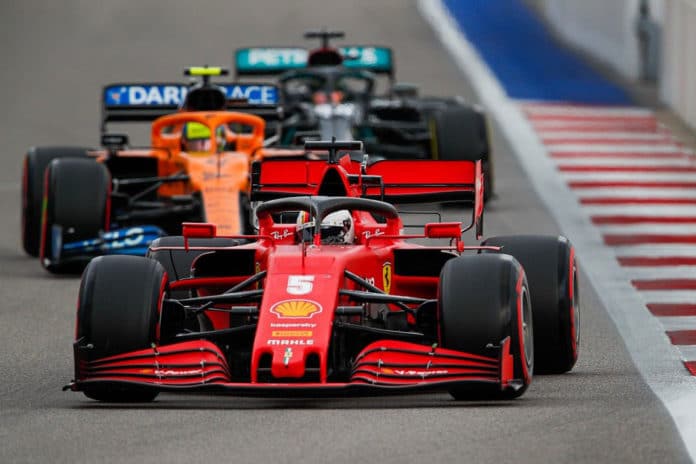Biofuels, a promising but sometimes controversial alternative fuel that offers a path away from their fossil-based counterparts, are coming to Formula 1. The Formula 1 World Championship organizers have announced the start of testing an environmentally friendly fuel made entirely from biowaste.
The International Automobile Federation (FIA) has announced the first barrels of 100% sustainable fuel have already been delivered to Power Unit manufacturers for testing and approval. The initiative is a part of the governing body’s commitment to becoming carbon neutral in 2021 en route to becoming net-zero by 2030.
“Formula 1 has long served as a platform for introducing next-generation advancements in the automotive world,” said Ross Brawn, Managing Director Motor Sports, Formula 1. “We are delighted by the momentum on sustainable fuels which perfectly aligns with our plan to be net-zero carbon as a sport by 2030.”
“Our top sustainability priority now is building a roadmap for the hybrid engine that reduces emissions and has a real-world benefit for road cars. We believe we have the opportunity to do that with a next-generation engine that combines hybrid technology with sustainable fuels.“
The transition of Formula 1 to biofuels is expected in 2025-2026 after the new technical requirements for power plants are to enter the world championship. The fuel for cars can already include up to 10% of new biofuels from 2021. The organizers believe that the championship can generate enormous environmental benefits by becoming a battlefield in terms of fuel technology.
Until then, F1 is committed to hybrid technology. The FIA will start demanding the use of a higher percentage of biofuels in the short term but wants Formula 1 to use a fully sustainable fuel for the next set of rules. F1 has now created a second-generation biofuel variant in pursuit of that goal, which has been refined exclusively from bio-waste, not intended for human or animal consumption. F1 engine manufacturers have been asked to test and validate the fuel to show that the technology can be used in racing.
The objective is to demonstrate the technology works and to lead F1 suppliers to develop their own fuels, with the mandatory requirement of 100% sustainable fuels in F1 targeted by the introduction of the new powertrain architecture.
“FIA takes its responsibility in leading motorsport and mobility into a low carbon future to reduce the environmental impacts of our activities and contribute to a greener planet,” said President of FIA Jean Todt. “By developing fuel made from biowaste that can power Formula 1, we are taking a new step forward. With the support of the world’s leading energy companies, we can combine the best technological and environmental performance.“
